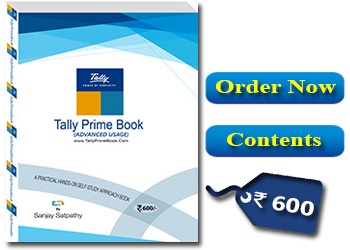The tax liability on a composite or a mixed supply shall be determined in the following manner, namely:—
| Situation |
Rate of GST applicable |
(a) A composite supply comprising two or more supplies, one of which is a principal supply. |
Such composite supply shall be treated as a supply of the principal supply and the rate of GST shall be the rate applicable to such principal supply. |
(b) A mixed supply comprising two or more supplies. |
It shall be treated as a supply of that particular supply which attracts the highest rate of tax |
1. Meaning of Composite Supply in GST [Section 2(30) of the CGST Act, 2017]
"Composite supply" is a supply made by a taxable person to a recipient consisting of two or more taxable supplies of goods or services or both, or any combination thereof, which are naturally bundled and supplied in conjunction with each other in the ordinary course of business, one of which is a principal supply.
This means that in a composite supply, goods or services or both are bundled owing to natural necessities. The elements in a composite supply are dependent on the 'principal supply'.
"Principal supply" means the supply of goods or services which constitutes the predominant element of a composite supply and to which any other supply forming part of that composite supply is ancillary [Section 2(90) of CGST Act, 2017]
Thus, provisions of composite supply may be summarized as under:
| Composite Supply |
Essential Elements of a composite supply |
- It is a supply made by a taxable person.
- It is made to a recipient.
- It consists of two or more taxable supplies of goods or services or both or any combination thereof which are naturally bundled and supplied in the ordinary course of business.
- One of the components of the supplies is a principal or main supply.
|
Tax treatment of a composite supply |
It shall be treated as supply of the principal supply. |
Examples
-
Where goods are packed and transported with insurance, the supply of goods, packing materials, transport and insurance is a composite supply and supply of goods is the principal supply.
-
When a customer purchases a car and he also gets warranty and a maintenance contract with the car, it is a composite supply. In this example, supply of car is the principal supply, whereas warranty and maintenance services are ancillary.
-
An air travel ticket from Delhi to Chennai costing Rs. 12,000 may include carriage of luggage, providing food on board and free insurance. In this case, the transport of passenger, constitutes the pre-dominant element of the composite supply, and is treated as the principal supply and all other supplies are ancillary.
-
When a consumer buys a television set and he also gets warranty and a maintenance contract with the TV, this supply is a composite supply. In this example, supply of TV is the principal supply, warranty and maintenance service are ancillary.
-
A hotel provides a 4-D/3-N package with the facility of breakfast. This is a natural bundling of services in the ordinary course of business. The service of hotel accommodation is the principal supply and shall, therefore, be treated as supply of providing hotel accommodation.
As per section 8(a) of CGST Act, the taxability in case of composite supply shall be determined on the basis of rate applicable to the principal supply.
It may be noted that the following composite supplies shall be treated as a supply of services:—
(a) works contract as defined in section 2(119); and
(b) supply, by way of or as part of any service or in any other manner whatsoever, of goods, being food or any other article for human consumption or any drink (other than alcoholic liquor for human consumption), where such supply or service is for cash, deferred payment or other valuable consideration.
2. Meaning of mixed supply [Section 2(74) of the CGST Act, 2017]
"Mixed supply" means two or more individual supplies of goods or services, or any combination thereof, made in conjunction with each other by a taxable person for a single price where such supply does not constitute a composite supply.
A supply can be a mixed supply only if it is not a composite supply. As a corollary it can be said that if the transaction consists of supplies not naturally bundled in the ordinary course of business then it would be a mixed supply.
Thus, provisions of mixed supply may be summarized as under:
| Mixed Supply |
Essential Elements of a Mixed supply |
- It is a supply made by a taxable person.
- It is made to a recipient.
- It consists of two or more individual supplies of goods or services or both or any combination thereof.
- The supply is made for a single price.
- The supply does not fulfill the parameters of a composite supply i.e. supply is not naturally bundled and not supplied in conjunction with each other in the ordinary course of business
|
Tax treatment of a Mixed supply |
It shall be treated as a supply which attracts the highest rate of tax. |
Examples
-
A supply of a package consisting of canned foods, sweets, chocolates, cakes, dry fruits, aerated drinks and fruit juices when supplied for a single price is a mixed supply. Each of these items can be supplied separately and is not dependent on any other. It shall not be a mixed supply if these items are supplied separately.
-
A shopkeeper sells storage water bottles along with refrigerator. In this case, the bottles and the refrigerator can easily be priced and sold separately. Hence, it is a mixed supply.
-
A house is given on rent one floor of which is to be used as residence and the other floor to be used as a printing press. Such renting for two different purposes is not naturally bundled in the ordinary course of business. Therefore, if a single rent deed is executed where only residential use of house is specified, it will be treated as a mixed supply as it is not naturally bundled and the renting of house for commercial use is a taxable supply. Thus the said supply shall be considered as service comprising entirely of such service which attracts highest liability of GST.
On a combined reading of aforesaid definitions of ‘mixed supply’ and ‘composite supply’ it can be inferred that mixed supply is the supply wherein goods or services supplied therein are not naturally bundled in the ordinary course of business. In other words, such services or goods can be supplied individually and supply of such goods or services is not interdependent on each other.
As per section 8(b) of the CGST Act, the tax liability in case of mixed supply shall be determined on the basis of the tax rate of that item of mixed supply that attract the highest rate of tax. |







